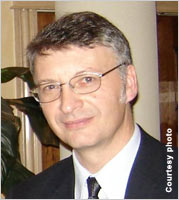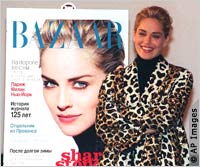
Before becoming chief executive of online shoe store Zappos.com, Tony Hsieh co-founded and then sold an advertising company to Microsoft Corporation.
Craig Newmark is founder of Craigslist Inc., an online classified ads company that is private and for-profit.

Waed al Taweel
When I was a high school student in St. Joseph’s School in Ramallah on the West Bank, I started my own business, named Teen Touch. It convinced me that entrepreneurship offers a way to relieve the hardships in the lives of Palestinian youths.
I speak from experience, although I am only 20 years old. I hired 28 classmates to staff the Teen Touch business. We specialized in organizing social events, such as birthday celebrations. We took care of all arrangements, from sending out invitations to renting the facilities to catering the food. In addition, we sometimes decorated buildings on holidays.
I entered Teen Touch in a competition for young entrepreneurs sponsored by the INJAZ organization, which trains young people in business skills in 12 countries in the Middle East and North Africa. I was named “best student CEO in the Arab world,” and Teen Touch was named “the best student company in the Arab world.” What great honors!
My next business plan – on hold until after I finish my university studies – is to build a recreation and entertainment center for Palestinian youths. The center will have a bowling alley, a skating rink, a miniature golf course, and a library with books and magazines from many countries. There is a big need for this kind of a center. Palestinian young people don’t have many places to spend their free time. It is usually in the streets or in their homes.
I know that launching this kind of a center will not be easy because it is difficult to get access to capital. But I have confidence that I can succeed through proper planning, adequate management and perseverance. (See profile article on Waed al Taweel).

Tony Hsieh
I love the idea of building a recreation and entertainment center for youth. My suggestion would be to have the young people help build it, which will give them a sense of ownership and accomplishment once it is complete.
In my upcoming book, Delivering Happiness: A Path to Profits, Passion, and Purpose, I write about one framework for happiness that consists of four elements: perceived control, perceived progress, connectedness (the number and depth of your relationships), and being part of something bigger than yourself.
Involving Palestinian teenagers in the design and construction of the youth center would hit on all four of these things. They would have a sense of control over what the youth center eventually looks like, which would cause them to be more likely to use the center once it has been built. They would be able to see the daily progress of their work. They would feel more connected to the other young people working on the project. And they would all be involved in building something that was bigger than just
themselves.
Their involvement doesn’t have to be limited to just design input and construction help. They could become part-owners of the business, or it could be set up as a co-operative. Over time, they could learn various skills such as fundraising (sales) and managing day-to-day operations.

Craig Newmark
This effort to build a recreation center for Palestinian youth sounds really good to me. I don’t know much about the field, but I know part of the solution will be to start connecting with other folks, particularly in your target market in the West Bank. Start connecting with people via Facebook, Twitter, whatever works for you. In particular check out ArabCrunch.net.
If you want, email me at craig(at)craigslist.org, and I’ll do an e-mail introduction between you and Gaith Sager, who runs it. Anyone can e-mail me. If I don’t respond in, let’s say, 36 hours or so, e-mail me again. That should work.
It doesn’t hurt to try to reach out to a possible mentor. Most people will be understanding. If someone is not, he or she is probably not a good mentor.






